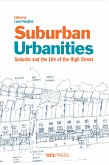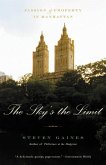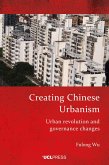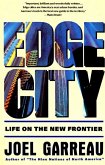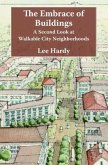Since the dawn of the oil era, cities in Saudi Arabia have witnessed rapid growth and profound societal changes. As a response to foreign architectural solutions and the increasing popularity of Western lifestyles, a distinct style of architecture and urban planning has emerged. Characterised by an emphasis on privacy, expressed through high enclosures, gates, blinds, and tinted windows, 'New Islamic Urbanism' constitutes for some an important element of piety. For others, it enables alternative ways of life, indulgence in banned social practices, and the formation of both publics and counterpublics.
Tracing the emergence of 'New Islamic Urbanism', this book sheds light on the changing conceptions of public and private space, in the twentieth and early twenty-first centuries, in the Saudi city of Jeddah. It challenges the widespread assumption that the public sphere is exclusively male in Muslim contexts such as Saudi Arabia, where women's public visibility is limited by the veil and strict rules of gender segregation. Showing that the rigid segregation regime for which the country is known serves to constrain the movements of men and women alike, Stefan Maneval provides a nuanced account of the negotiation of public and private spaces in Saudi Arabia.
Praise for New Islamic Urbanism
'A welcome addition to the growing literature on the politics of the relationship between Islam and the built environment. With its accessible style, this rich book will be of interest to an interdisciplinary audience including both scholars and students.'
International Journal of Middle East Studies
'New Islamic Urbanism offers a lively picture of how society in Jeddah negotiated and understood the private and public spheres through architecture over the last century. Unlike other works within the discourse of the Islamic city, this book considers various social groups, including immigrants, foreign labourers, political dissidents, religious minorities, and members of the gay community. This social inclusion presents a clearer picture of how public and private spaces in Jeddah can be understood.'
International Journal of Islamic Architecture
Tracing the emergence of 'New Islamic Urbanism', this book sheds light on the changing conceptions of public and private space, in the twentieth and early twenty-first centuries, in the Saudi city of Jeddah. It challenges the widespread assumption that the public sphere is exclusively male in Muslim contexts such as Saudi Arabia, where women's public visibility is limited by the veil and strict rules of gender segregation. Showing that the rigid segregation regime for which the country is known serves to constrain the movements of men and women alike, Stefan Maneval provides a nuanced account of the negotiation of public and private spaces in Saudi Arabia.
Praise for New Islamic Urbanism
'A welcome addition to the growing literature on the politics of the relationship between Islam and the built environment. With its accessible style, this rich book will be of interest to an interdisciplinary audience including both scholars and students.'
International Journal of Middle East Studies
'New Islamic Urbanism offers a lively picture of how society in Jeddah negotiated and understood the private and public spheres through architecture over the last century. Unlike other works within the discourse of the Islamic city, this book considers various social groups, including immigrants, foreign labourers, political dissidents, religious minorities, and members of the gay community. This social inclusion presents a clearer picture of how public and private spaces in Jeddah can be understood.'
International Journal of Islamic Architecture
Dieser Download kann aus rechtlichen Gründen nur mit Rechnungsadresse in A, D ausgeliefert werden.



